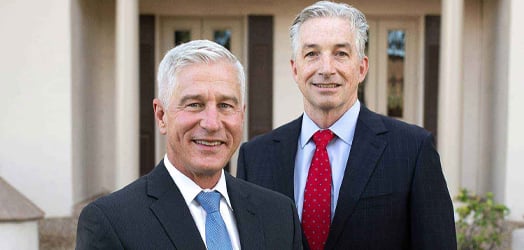Doctor drug addiction on the rise. How much are patients at risk?
Prescription drug misuse in the United States has increased in recent years, particularly with nurses and doctors. Sadly, healthcare personnel working while under the influence of narcotics have put patients’ lives at risk.
USA TODAY recently profiled a story about a nurse anesthetist who was stealing patient medication and using it while on the job. Sadly, her story is not unusual.
Prescription drug misuse in the United States has increased in the last decade, particularly with nurses, doctors, and others working in the healthcare industry. According to USA TODAY, over 100,000 healthcare professionals in the U.S. are presently struggling with narcotic addiction to oxycodone, fentanyl, and others-all while working with patients.
And those working under the influence of drugs while treating patients are increasing the potential for medical errors to occur. The latest estimates conclude that just one doctor or healthcare professional addicted to drugs puts thousands of patients’ lives at risk.
And there are examples to prove the statistic.
Cases-in-point
USA TODAY recently highlighted three instances involving drug addicted of healthcare professionals who infected patients with the hepatitis virus as a result of stealing drugs, or “drug diversion” as it’s referred to.
In one instance, a hospital technician was stealing patient’s syringe-filled pain medication and injecting himself with the drugs. He refilled the syringes with saline to cover up his actions. As a result, 50 people were infected with hepatitis by the tainted syringes and roughly 8000 patients needed to undergo hepatitis testing.
Two other similar incidences occurred in Denver, Colorado, and Jacksonville, Florida. Healthcare workers in these two states were also found using patient syringes. Their actions also resulted in many patients contracting the hepatitis virus.
Unfortunately, USA TODAY indicates that there are so many other inconspicuous instances of drug-related medical errors that occur that aren’t profiled as intensely as the cases involving hepatitis. According to review of state and federal records, drug addicted healthcare personnel have been found administering incorrect medication doses and ignoring or not responding to a patient’s vital signs,
Reasons behind the lack of oversight
Sadly, the data reveals that many instances of addiction in the healthcare field go unnoticed. The reasons are likely because many doctors have easy access to narcotics and other drugs, and possess knowledge of the system and protocols all with meager oversight.
However, there also seems to be limited measures implemented in hospitals and other healthcare entities to handle a healthcare worker’s drug addiction.
According to Lauren Lollini with the HONOReform patient safety group, “Drug diversion affects so many people, and the systems for dealing with it are completely broken.”
Additional oversight, penalties
It’s evident more needs to be done to combat drug addiction in the healthcare industry.
Some suggest additional oversight. States should implement laws that mandate all hospitals notify authorities whenever there is a drug diversion instance detected in order to bring true awareness about the drug problem within the medical community, they argue.
Others propose that healthcare workers should undergo random drug testing. Art Zwerling, chief nurse anesthetist at Philadelphia’s Fox Chase Cancer Center and a recovering prescription drug addict, suggests that, “Any clinician in a hospital should be subject to random toxicology screening.”
Yet others argue that addicts should be punished. More stringent penalties for healthcare workers who put patient’s lives at risk while working under the influence should be implemented.
More also needs to be done to help make up for the harm caused to patients by addicted healthcare providers.
Keywords: drug diversion, prescription drug misuse, medical errors


